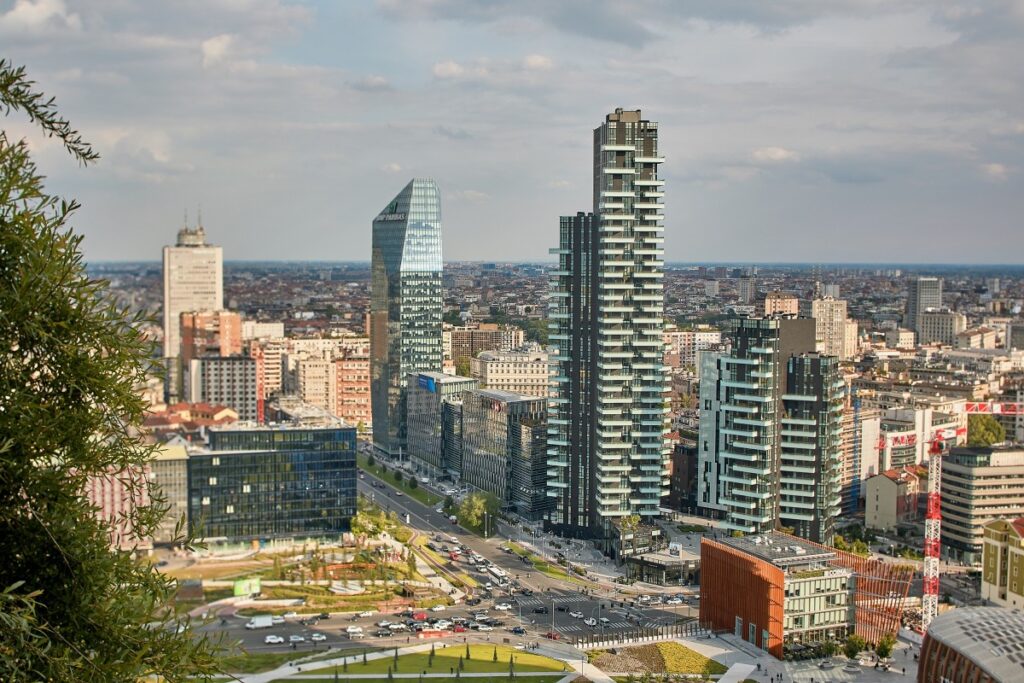Introduction
Turin, Italy, has emerged as a significant focal point for commercial real estate investment as we step into 2025. This evolution is driven by the city’s robust economic landscape, technological advancement, and rich cultural tapestry, attracting a plethora of investors to its commercial real estate (CRE) sector. In my journey as an entrepreneur with a keen interest in property investment, Turin presents an unparalleled opportunity to diversify and enrich my portfolio. Here, I’ll share insights into the appeal of Turin for commercial investors, my personal investment journey, key considerations for international investors, the future outlook of Turin’s commercial real estate market, and a call to action for prospective investors.
The Appeal of Turin for Commercial Investors
Turin’s Position in the Italian and European Market:
Turin, with its historical significance and modern innovation, offers a fertile ground for commercial real estate (CRE) investments. The city’s industrial legacy, combined with its push towards technological innovation and cultural richness, sets a compelling stage for investment opportunities. In 2025, Turin continues to leverage its strengths, presenting a unique blend of traditional charm and modern dynamism to investors.
Economic and Market Insights:
The commercial real estate (CRE) market in Turin is experiencing a transformative phase, influenced by global economic trends and local market dynamics. According to Deloitte Insights, the real estate sector globally faces challenges and opportunities, with expense mitigation and technology adoption being top priorities for firms. This context underscores the potential for strategic investments in Turin, focusing on sectors that align with these broader trends.

My Journey into Turin Commercial Real Estate
Embarking on the commercial real estate investment journey in Turin has been both a strategic and enlightening experience. This segment of my investment portfolio represents a confluence of rigorous market analysis, cultural immersion, and an exploration of the innovative economic landscape that Turin presents. Let me walk you through the pivotal phases of this journey, highlighting the discoveries, challenges, and strategies that have shaped my approach.
Initial Attraction and Research:
My attraction to Turin as a vibrant investment destination stems from its rich industrial history, burgeoning technological sector, and cultural depth. Recognizing Turin’s potential required an in-depth analysis of market trends, economic forecasts, and demographic shifts. Utilising resources such as CBRE’s outlook for 2025 provided a foundational understanding of the commercial real estate landscape, both globally and within Italy.
Due Diligence and Strategic Planning:
Diving into the specifics of Turin’s market, I dedicated substantial time to due diligence, understanding the legalities, tax implications, and socio-economic dynamics at play. This phase involved consultations with local experts, analysis of property valuations, and scrutinising the potential for long-term value creation. It was crucial to align these findings with broader economic indicators and investment strategies, ensuring that each step was informed and deliberate.
Navigating Challenges:
One of the main challenges was bridging the gap between the local market intricacies and my investment criteria. The Italian commercial real estate market comes with its own set of regulatory frameworks and market norms, which required careful navigation. Establishing trusted local partnerships was essential in overcoming these hurdles, offering insights into the unique opportunities and challenges of investing in Turin.
.
Focused Investment Strategy:
With a clear understanding of Turin’s market dynamics, I adopted a focused investment strategy, targeting properties that offered both immediate returns and long-term growth opportunities. This included investing in areas with high potential for economic development, properties that could benefit from technological upgrades, and spaces that catered to Turin’s growing tourism and cultural sectors.
As this journey unfolds, the experiences gained and lessons learned in Turin continue to shape my broader investment philosophy. The city’s blend of historical charm and modern innovation serves as a constant reminder of the diverse opportunities that exist within the world of commercial real estate investment.

Key Considerations for International Investors
When venturing into Turin’s commercial real estate (CRE) market, international investors face a multifaceted landscape that requires a comprehensive understanding of various factors. This complexity is not just about the investment itself but understanding how Turin’s market operates within the broader Italian and European economic contexts.
Navigating the Turin Market:
Firstly, gaining a deep understanding of the local legal framework is imperative. This includes zoning laws, property rights, and the intricacies of commercial real estate transactions in Italy. Additionally, tax implications play a significant role in shaping the profitability and operational efficiency of investments. Italy’s tax regime, including VAT, property taxes, and income taxes on rental earnings, necessitates careful planning and strategy.
Economic indicators provide insights into market trends, consumer behaviour, and potential growth areas. Deloitte’s insights for 2025 emphasise a cautious approach, advising investors to prioritise sustainability and operational efficiency in their strategies. This cautious approach is informed by a global economic climate marked by fluctuations and uncertainties, suggesting that resilience and adaptability will be key to success.
Adapting to Market Dynamics:
The Turin’s commercial real estate market, like many others, is in a state of evolution, influenced by global economic forces, technological advancements, and shifts towards more sustainable practices. Investors need to be agile, ready to adapt their strategies to align with these changing dynamics. Focusing on sectors that are at the forefront of sustainability and technological integration provides a competitive edge. For instance, properties that offer green certifications or are equipped with the latest technological infrastructures may attract a premium in the market.
Moreover, the post-pandemic world has seen a shift in work patterns, with a growing emphasis on flexible workspaces and digital infrastructure. Investing in commercial properties that cater to these new norms—such as adaptable office spaces or commercial complexes with advanced connectivity solutions—can offer lucrative opportunities.
Understanding and adapting to the local culture and consumer preferences in Turin is also crucial. Investments should not only be financially viable but also resonate with the local community and business ecosystem. This means considering the social impact of your investments and how they contribute to the city’s economic and cultural development.
In essence, successfully navigating the Turin commercial real estate (CRE) market as an international investor involves a blend of strategic foresight, local insights, and a commitment to sustainability and innovation. By carefully considering these aspects, investors can position themselves to capitalise on the unique opportunities that Turin has to offer, while also contributing positively to its economic landscape.

Future Outlook for Turin’s Commercial Real Estate Market
Market Trends and Predictions:
The commercial real estate (CRE) market in Turin is on the cusp of significant transformation. Driven by a global economy finding its footing post-pandemic and an increased emphasis on sustainable development, Turin’s market is ripe for strategic investment. Industry leaders, echoing insights from Deloitte and CBRE, anticipate a burgeoning demand for properties that not only align with but also propel forward the sustainability and innovation agendas .
With urbanisation continuing apace and Turin’s strategic position in Italy and Europe, the city is expected to attract a diverse mix of businesses looking for environmentally friendly and technologically advanced commercial spaces. This trend towards greener, smarter buildings is not just a fad but a fundamental shift in investor and tenant priorities, promising to redefine the commercial real estate landscape in Turin and beyond.
Strategic Investment Opportunities:
The pivot towards sustainability presents numerous investment avenues in Turin’s commercial real estate market. Properties that offer the potential for significant value addition through technological and green initiatives stand out as particularly promising. This includes buildings with high energy efficiency, smart building technologies, and facilities that support a lower carbon footprint, aligning with broader industry trends and societal demands for more sustainable living and working environments.
The focus on creating adaptable and multifunctional spaces reflects another significant trend. With the changing dynamics of work and leisure, properties that can easily transition between different uses—such as co-working spaces, hybrid event venues, and retail-cum-office setups—will likely see increased demand. This flexibility will be a key determinant of success, as it allows for resilience against market fluctuations and changing consumer behaviours.

Embrace Your Investment Future with Pearl Lemon Properties

As we look towards the future, Turin’s commercial real estate market stands out as a beacon of opportunity for those willing to navigate its complexities with innovation and sustainability at the forefront. My journey and insights into this vibrant market underscore the potential for substantial returns and the importance of strategic, informed investment approaches.
If you’re considering exploring the dynamic landscape of Turin’s commercial real estate, or if you’re seeking to diversify and enrich your investment portfolio with properties that promise growth and sustainability, let’s connect with me at Pearl Lemon Properties. My team at Pearl Lemon Properties, under my instructions leverage cutting-edge market insights, deep local expertise, and a forward-thinking approach to help you unlock the full potential of your investments. Reach out to us today to discover how we can achieve your investment goals together in the ever-evolving world of real estate.






